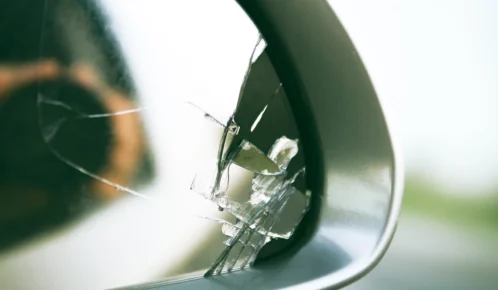After a car accident, victims may wonder, “how much is my car accident worth?” There is no one-size-fits-all answer, as numerous factors come into play when calculating the value of a car accident settlement. In Chicago, Illinois, settlement claims depend on the severity of the injuries, liability, and the level of insurance coverage.
Table of Contents

The Cost of Car Accident Injuries in Illinois
Understanding the value of your car accident claim can help you avoid settling for less. Insurance companies often rely on the ignorance of victims to lowball them with settlements well below rightful compensation.
What Are Illinois’ Laws Regarding Car Accident Injury Claims?
Illinois is an at-fault state. That means if the other motorist was deemed to be at fault for the accident, his or her insurance company can be held liable for your car accident.
However, that doesn’t eliminate the possibility of filing a claim with your own insurance company. In some cases, your own policy may be superior to the other motorist’s policy, as he or she may have insufficient liability insurance.
The minimum third-party coverage required under Illinois law is $20,000 for property damage and $25,000 per person (up to $50,000 per accident) for bodily injury. In some cases, your medical bills may exceed that amount, and your own insurance company may offer higher coverage.
Factors That Impact the Value of Your Claim
The amount your car accident is worth depends on liability and the extent of the damages.
The Extent of Damages
One of the primary factors impacting the value of your claim is the extent of the damages. You can claim compensation for all sorts of damages after a car accident. Typically, damages include bodily injury and property damage.
Bodily injuries may result in medical bills and lost wages. For example, the accident may put you out of commission for a few months, and while you are unable to work, you will lose income. In addition, it may cause emotional damage and symptoms such as PTSD, for which you can also claim compensation. In some cases, it may cause a lower quality of life or lifelong pain and suffering. For example, if your face was disfigured, it may cause you emotional stress in social situations.
Property damage usually refers to damage to your vehicle. You may have to take your vehicle for repairs. If it was totaled, the insurance company may pay the entire cash value of your vehicle, although it is not required to cover the payments for a loan you take out on a new vehicle.
If the injuries were minor, your compensation may only be worth a few thousand dollars. However, in serious cases, it could easily go up to the dozens or hundreds of thousands. That’s because you may have to pay for expensive surgeries, physical therapy, speech therapy, or other rehabilitation costs.
In cases of death, you may be able to seek a wrongful death settlement, which is typically a lot higher than personal injury claims.
Comparative Negligence
Illinois uses modified comparative negligence. That means if both parties were deemed to be at fault, the insurance companies will investigate to determine who gets compensation.
If you were more than 50% at fault, you will not receive compensation for the accident. However, if you were less than 50% at fault, you will still receive compensation, despite having played a part in the accident.
The amount you will receive, though, is relative to how much you contributed to the accident. If you were deemed to be 25% responsible, you will still receive compensation. However, the insurance company may only pay 75% of your damages.
Car insurance companies investigate accident claims to determine the degree of fault each party holds. The insurance company may interview each motorist, interview witnesses, review accident reports, and review medical bills to come to this conclusion.
How a Car Accident Injury Attorney Can Help You After a Crash
Insurance companies are not unbiased when it comes to assessing property damages. Even if it’s your own insurance company, which has a direct contract with you, they are still for-profit companies. It is in their best interests to pay you less, not more. That’s where a car accident lawyer comes into the picture. He or she can help you accurately calculate the value of your case. Then, your attorney can lead negotiations with the insurance company to pursue just compensation.
Fighting for Full Compensation
Usually, personal injury lawyers work on a contingency basis. That means if you get paid, they get paid. If you don’t win a claim, the attorney may not charge anything. Many attorneys take a percentage of your claim amount, so it is in their best interests to ensure you get as much as possible.
A car accident attorney has your best interests in mind. While the insurance company will try to minimize your claim, an attorney will do all he or she can to ensure you get full compensation.
In any case, never sign a release for damages before you consult with an attorney. Signing such a document exempts the insurance company from paying more than the settlement it is offering you. In reality, you may be eligible for a higher amount of compensation.
While it’s understandable to want to reach a cash settlement as quickly as possible, don’t be too eager to accept the money. Often, insurance companies rely on the fact that victims are desperate for cash. If you are able to have some patience, you may get a much higher amount.
If your medical bills are ongoing, a lawyer may advise such a route to avoid getting lowballed on your bodily injury claim.
Thoroughly Investigating Your Case
In either case, an attorney can do a more thorough investigation to calculate the value of your claim. The insurance company may have missed important witnesses, for example, and failed to include their statements in their investigation. An attorney can conduct an investigation to uncover who was really at fault.
Finding All Avenues of Recovery
At times, when you file a claim with the other motorist’s insurance company, it may deny your claim or only approve a settlement lower than what you want. In other cases, the at-fault driver may have insufficient coverage.
You have options in such cases. One is to file a claim with your own insurance company. You can also sue the other motorist in court under some circumstances.
Representing You in Court
In some cases, bringing your case to trial may be an option, and you’ll need a lawyer to argue your case. The judge or jury may come to a different determination than the insurance company, thus ensuring you get compensation.
Filing Within the Statute of Limitations
Personal injury claims are governed by the statute of limitations, a deadline in place for seeking compensation after an accident. Car accident cases fall under this category. For bodily injury claims, victims only have two years from the date of the accident (or two years from when they turned 18 if they were underage at the time of the accident) to file. Failing to file before the deadline could lead to forfeiting your claim.



